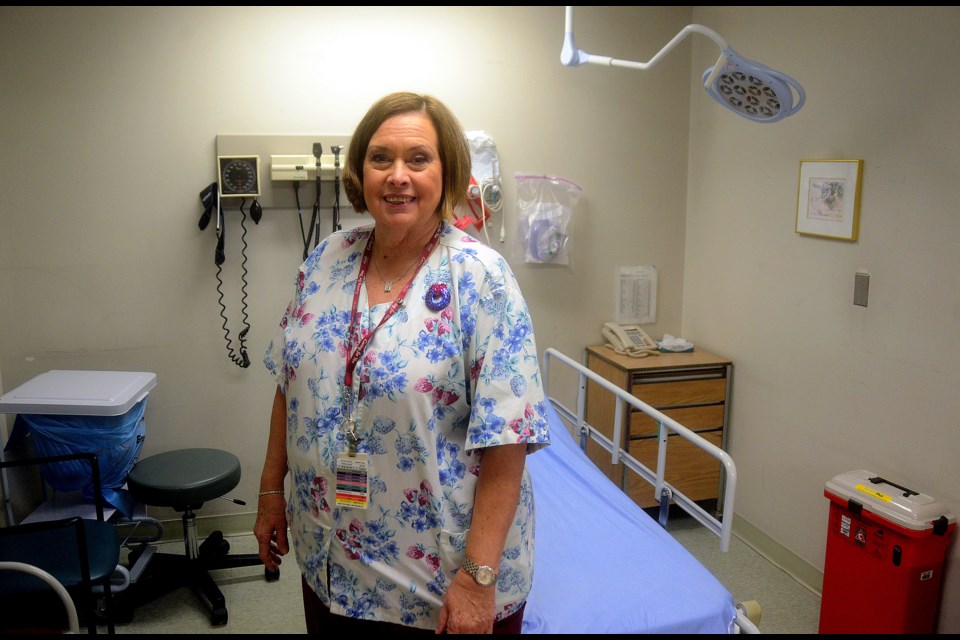Nursing has always been more than work to Frankie Hammond.
“Nursing is not just a job really. It’s who you are,” says Hammond, who later this month will retire after a
50-year career of nursing in Guelph, first at St. Joseph’s and then the last 15 years at Guelph General Hospital.
From the operating room and emergency room to pediatrics and surgical floors, she has worked in just about every department the hospital has.
The past few years have been spent in ambulatory care, taking care of outpatients coming to the hospital for chemotherapy treatments.
It’s a role she has embraced and calls it her favourite place to work for all the right reasons.
“We meet people at a special time in their lives and some of them are not going to survive, and they know that. We’re let in on that time in their life. It took me a while to learn it, but if they’re going to go through that and we can do anything to make it easier, then we’ve done our job.”
It’s a precious time to be with a patient.
“Very much so. The way they handle things with such grace…,” she says, her voice trailing off and her voice breaking with emotion.
Hammond had just turned 18 when she entered nurse training, moving to Guelph from Georgetown to live and learn at the school attached to the old St. Joseph’s Hospital.
“My mom decided I was going to be a nurse. I was told my whole life I was going to be a nurse,” she says of the career non-choice. “In those days, girls were a secretary, a teacher or a nurse. There just wasn’t a lot of options that you considered.”
Her mom Jean had wanted to be a nurse but she had to quit school when her dad died to help support her family.
The nurses-in-training had clinical instructors in class and lived in the residence run by the nuns.
Three years of training with plenty of practical work in the hospital itself.
“We worked at the hospital, looking after four patients until the morning, then we would have to be back at school for 9 a.m.,” she says.
There were curfews during the week: 9:30 p.m. for the younger nurses in training, later hours as they got older.
“The curfews were kind of good sometimes if you happened to be out on a bad date,” Hammond says with a laugh.
Not all the free nights ended too soon. It was on Thursday night out with other nurses at a bar called The Boiler Room on Wyndham Street that she me her husband Russ. The two have been married 48 years and have two children and five grandchildren.
“At graduation they asked, ‘who’s planning to stay?’ and we just put our hands up,” says Hammond, who stepped right in to full-time work at St. Joseph’s, taking home $60 a week to start.
“I’ve never had to apply for a job,” she says of her long career in Guelph.
She has seen countless changes in the profession, both in technology and in attitudes.
One she notes is how willing many doctors are today to listen to nurses and be open to what they’re saying. In the old days that was rarely the case.
“We used to have to jump to attention when the doctor came to the desk, whether he deserved that respect or not,” she says.
“Today I find the doctors are a lot more approachable and you can actually have a conversation with them and ask them a question that isn’t taken as a questioning of their knowledge or skill,” Hammond says.
She will miss the job and she will miss her co-workers.
“I love this job and the people I work with. I’ve been so lucky to work with such amazing people,” she says.
“But I’ll find something to do.”
